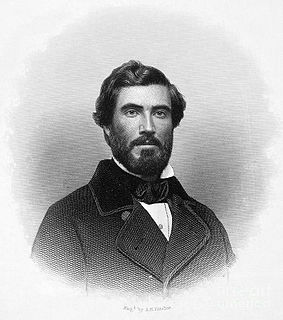A Quote by Charles Darwin
Ignorance more frequently begets confidence than does knowledge.
Quote Topics
Related Quotes
The Socratic maxim that the recognition of our ignorance is the beginning of wisdom has profound significance for our understanding of society. Most of the advantages of social life, especially in the more advanced forms that we call "civilization" rest on the fact that the individual benefits from more knowledge than he is aware of. It might be said that civilization begins when the individual in the pursuit of his ends can make use of more knowledge than he has himself acquired and when he can transcend the boundaries of his ignorance by profiting from knowledge he does not himself possess.
We have heard of a Society for the Diffusion of Useful Knowledge. It is said that knowledge is power, and the like. Methinks there is equal need of a Society for the Diffusion of Useful Ignorance, what we will call Beautiful Knowledge, a knowledge useful in a higher sense: for what is most of our boasted so-called knowledge but a conceit that we know something, which robs us of the advantage of our actual ignorance? What we call knowledge is often our positive ignorance; ignorance our negative knowledge.
The Christian religion, [Pascal] claims, teaches two truths: that there is a God who men are capable of knowing, and that there is an element of corruption in men that renders them unworthy of God. Knowledge of God without knowledge of man's wretchedness begets pride, and knowledge of man's wretchedness without knowledge of God begets despair, but knowledge of Jesus Christ furnishes man knowledge of both simultaneously.
One bleeding-heart type asked me in a recent interview if I did not agree that 'violence begets violence.' I told him that it is my earnest endeavor to see that it does. I would like very much to ensure - and in some cases I have - that any man who offers violence to his fellow citizen begets a whole lot more in return than he can enjoy.
Monks, when ignorance is abandoned, and knowledge arises in the monk, with the ending of ignorance and the arising of knowledge he clings neither to sense-pleasures, nor does he cling to views, nor to precepts and vows, nor to a Self-doctrine. Not clinking, he is not disturbed; not disturbed, he attains individually nibbana.


































